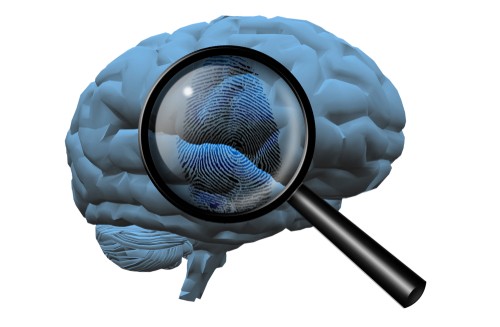Whether you’re a fan of “Criminal Minds” or have a knack for criminal justice and psychology, we know which career path is the right one for you. Today, people are more aware than ever of mental health illnesses. The awareness isn’t just limited to regular people; it has made its way into the justice system, and rightfully so. Previously, criminals got sentenced as per the crimes they committed. Presently, a forensic psychologist is appointed to ensure whether the criminal is fit to stand trial. Sometimes, these professionals must take the stand in several cases to build the connection between the defendant’s mental health and the crime they committed.
Arguably, forensic psychology may be the most challenging but thrilling profession in the line of psychology and criminal justice. The justice system sometimes depends on these experts to determine whether the defendant’s insanity is legitimate or mere pretense. The future of the defendant relies on the hands of forensic psychologists. Moreover, forensic psychologists are supposed to do this by use of interrogation and body language assessment only. Therefore, they must comprise the relevant soft and hard skills to pursue this profession and carry such responsibility on their shoulders. If you’re devoted to this field, continue reading to know how you can admit yourself and prosper in it.

Earn a Relevant Degree
The first step to beginning every career is to earn the proper qualification for it. Here, it’s a bachelor’s degree in forensic psychology. Your best bet is to enroll in a forensic psychology degree online program to save yourself some costs and time. Online programs allow you to have a flexible schedule and pursue other things alongside education, for example, a part-time job or a relevant internship. This degree offers all the insights and a comprehensive understanding of the world of forensic psychology. It will build your foundational concepts and foster the skill set necessary in this profession.
Enroll In Undergraduate Internships
Once you’ve enrolled in a bachelor’s degree, the next step is to gain relevant experience. If your undergraduate program is online, it will give you just enough time to carry on with an internship and other extracurricular affairs. While your educational program will offer you theoretical knowledge, internships will grant you real-world experience and certification. It will be your upper hand from competitors in this career. You get to hone the skills and apply the concepts that you learned in class. Internships also boost your chances of enrolling in an advanced degree from a reputable institute. Lastly, you also get to build connections that help you in the future of your career.

Foster Beneficial Skills
You can earn all the degrees and experience you want, but they’ll be of no use unless you possess the right skill set for the job. Forensic experts are expected to be superheroes that have the superpower of reading minds. This superpower determines the future of the criminal and the people. They might be exposed to their foul play if released by pleading insanity. You’ll need to have strong communication skills to connect with inmates, victims, lawyers, and judges. This communication plays a significant role in your job.
1. Communication
While the criminals might be exceedingly aggressive, the victims will indeed be drowning in the oceans of despair. The judges will need to get briefed with utmost clarity regarding the situation. In contrast, the lawyers will most probably not be willing to listen. You cannot use the same communication approaches with all of them. Therefore, mastering the right communication tactics for each personality type is a must.
2. Objectivity and Critical Thinking
Another beneficial skill is objectivity. No matter what the case entails, forensic psychologists cannot become emotionally involved. It compromises their judgment which is the last thing a forensic psychologist should be doing. Moreover, critical thinking is also a requisite skill. You must not trust the criminal and always leave space for doubt. Similarly, you cannot always trust the justice system.
3. Attention To Detail
Attention to detail will help you in reading body language. Understanding body language isn’t just an integral part of the criminal assessment. You’ll also need to assess victims and juries to cancel out the possibilities of potential biases. While maintaining objectivity is necessary, a forensic psychologist must also be compassionate.
4. Compassion
For the longest time, criminals with mental health conditions were denied justice due to a lack of awareness. Forensic psychologists seal the gap between the justice system and mental health awareness. Rather than obtaining the maximum sentence for mentally ill criminals, the job is to get them into a facility to get better.
It’s safe to say that a forensic psychologist acts as a mediator between the two parties in the court. They don’t take sides. Their goal is to obtain justice for both the defendant and the victim. Your incentive as a forensic psychologist is to advocate for the rights of humans. The defendant is a human too. Ensuring a fair trial for them is part of the job.

Earn an Advanced Degree
A master’s degree takes a minimum of two years to complete. In forensic psychology, it will open up avenues of new opportunities for you. You’ll likely get offered better job openings, and if you’re already employed, you might get a raise. A master’s degree is sort of necessary to climb up the ladder in forensic psychology’s hierarchy. It might require you to contribute some credit hours to working in prisons, courts, police departments, and mental health facilities. It will also prepare you for a doctorate in forensic psychology which is ultimately the next step to climb to the top.
Register Yourself
To become a certified forensic psychologist, you can register yourself in the American Board of Professional Psychology during your Ph.D. program. To earn your license, you’ll need to contribute several hours of work according to your State’s requirement. After that, you’ll need to pass an exam as the last step to earn your license.
The Bottom Line
The world of forensic psychology might seem intriguing. However, it is certainly not a walk in the park. To begin your journey, you must earn an undergraduate degree and participate in internships and research programs. Moving forward, you’ll need an advanced degree or two to climb up the hierarchy. The education process can take anywhere from 6 to 10 years, including the doctorate. Once you get done with the qualification, register yourself with the American Board of Professional Psychology and begin your journey towards earning a license to practice legally and clinically as a psychologist.
You may like to know about: How to Psychologically Adapt to an Abnormal Situation

A fervent champion for holistic well-being, graces this community with her expertise in health and fitness. With a solid educational foundation in physical fitness and a commitment to empowering others, Sara distills her extensive knowledge and experience into actionable insights. Her writing, firmly grounded in evidence-based practices, aims to demystify health complexities and inspire readers to cultivate sustainable habits for a balanced life. As a certified fitness trainer, Sara offers a well-rounded perspective on wellness. Join Sara on this transformative journey towards a happier, healthier, and more vibrant you.






Loading…